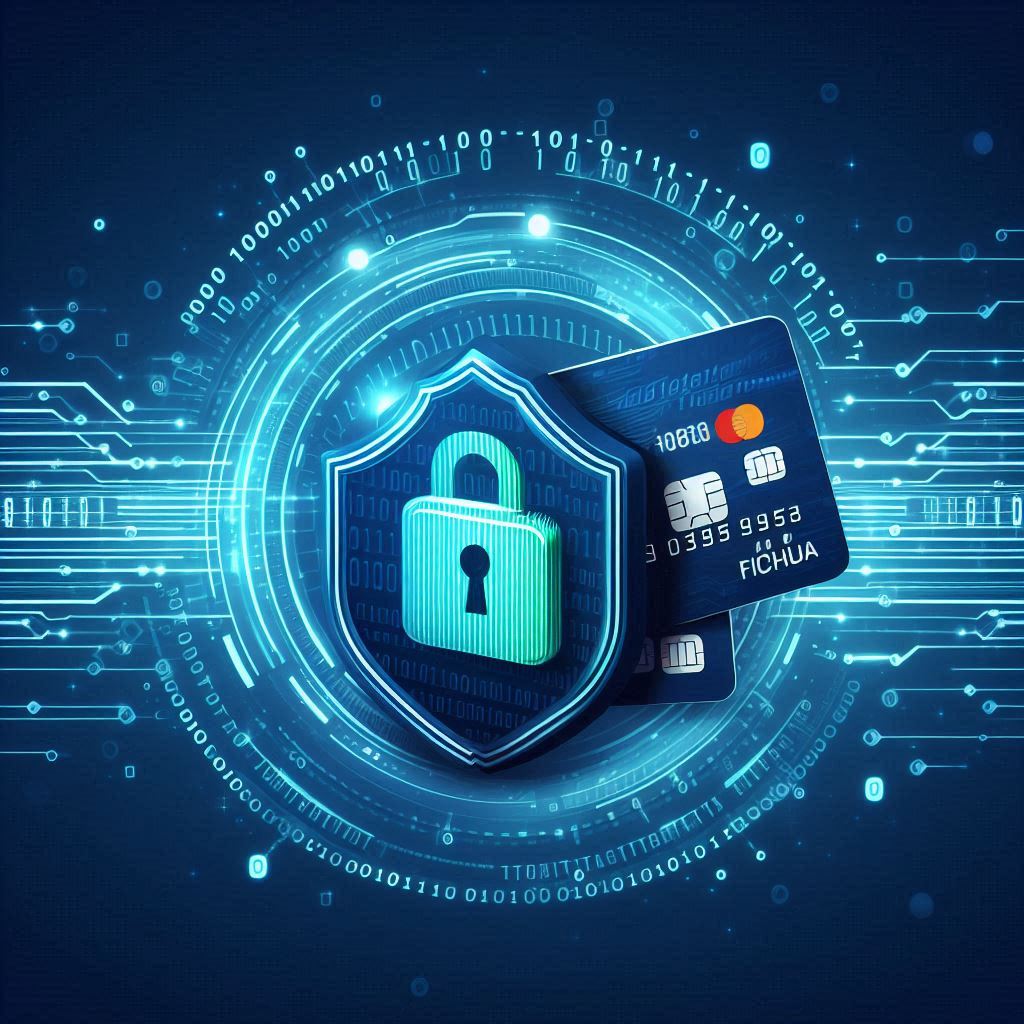The Basics of E-commerce Payment Gateways
E-commerce has become an integral part of our daily lives, with more and more people turning to online shopping for their needs. As a result, businesses are also shifting their focus towards e-commerce to reach a wider audience and increase their sales. However, with the rise of online transactions, the need for secure and efficient payment methods has also increased. This is where e-commerce payment gateways come into play.
In simple terms, an e-commerce payment gateway is a service that authorizes and processes online payments for businesses. It acts as a bridge between the customer, the merchant, and the financial institution, ensuring that the transaction is completed smoothly and securely. But how exactly does it work? Let’s delve deeper into the basics of e-commerce payment gateways.
The first step in understanding e-commerce payment gateways is to know the parties involved. The customer is the one making the purchase, the merchant is the business selling the product or service, and the financial institution is the bank or credit card company that holds the customer’s funds. The payment gateway acts as a middleman between these parties, facilitating the transfer of funds from the customer to the merchant.
When a customer makes a purchase on an e-commerce website, they are directed to the payment gateway’s secure page to enter their payment information. This information is then encrypted and sent to the financial institution for verification. Once the transaction is approved, the payment gateway sends a confirmation to the merchant, and the funds are transferred from the customer’s account to the merchant’s account.
One of the key features of e-commerce payment gateways is their ability to process different types of payments. This includes credit and debit cards, e-wallets, and even cryptocurrency. This versatility allows businesses to cater to a wider range of customers and provide them with a seamless payment experience.
Another important aspect of e-commerce payment gateways is security. With the rise of online fraud and data breaches, customers are becoming more cautious about sharing their financial information online. Payment gateways use advanced encryption and security protocols to protect sensitive data and ensure that transactions are safe and secure. This not only gives customers peace of mind but also builds trust in the business.
Apart from security, e-commerce payment gateways also offer convenience. With traditional payment methods, customers have to physically visit a store or bank to make a payment. However, with payment gateways, customers can make purchases from the comfort of their homes, using their preferred payment method. This convenience factor has contributed to the growth of e-commerce and has made it a preferred choice for many consumers.
Now that we have covered the basics of e-commerce payment gateways, let’s take a look at the different types available. The most common type is the hosted payment gateway, where the customer is directed to a secure page hosted by the payment gateway provider. Another type is the integrated payment gateway, where the payment process is seamlessly integrated into the merchant’s website. There are also self-hosted and API-based payment gateways, each with its own set of features and benefits.
How to Choose the Right Payment Gateway for Your Online Business

In today’s digital age, e-commerce has become an essential part of running a successful business. With the rise of online shopping, it is crucial for businesses to have a reliable and secure payment gateway to process transactions. A payment gateway is a technology that allows customers to make online payments for goods or services. It acts as a bridge between the customer’s bank and the merchant’s bank, ensuring that the transaction is completed securely and efficiently.
Choosing the right payment gateway for your online business is a critical decision that can impact your sales and customer satisfaction. With so many options available, it can be overwhelming to determine which payment gateway is the best fit for your business.
The first factor to consider is the security of the payment gateway. With the increasing number of cyber threats, it is crucial to choose a payment gateway that prioritizes security. Look for a payment gateway that is PCI-DSS compliant, which means it meets the security standards set by the Payment Card Industry Security Standards Council. Additionally, consider a payment gateway that offers fraud detection and prevention tools to protect your business and customers’ sensitive information.
Another important factor to consider is the fees associated with the payment gateway. Most payment gateways charge a transaction fee, which is a percentage of the total transaction amount. Some may also charge a monthly or annual fee. It is essential to compare the fees of different payment gateways to find the most cost-effective option for your business. Keep in mind that the cheapest option may not always be the best, as it may lack essential features or compromise on security.
Integration is another crucial factor to consider when choosing a payment gateway. It is essential to choose a payment gateway that seamlessly integrates with your e-commerce platform. This will ensure a smooth checkout process for your customers and reduce the risk of technical issues. Some payment gateways offer plugins or APIs that make integration easier, while others may require more technical expertise. Consider your business’s needs and capabilities when choosing a payment gateway that integrates well with your e-commerce platform.
The payment methods accepted by the payment gateway is also an important consideration. Different payment gateways support different payment methods, such as credit cards, debit cards, e-wallets, and bank transfers. It is crucial to choose a payment gateway that supports the payment methods preferred by your target audience. This will ensure a seamless and convenient checkout experience for your customers, leading to higher conversion rates.
Customer support is another crucial factor to consider when choosing a payment gateway. In case of any technical issues or concerns, it is essential to have reliable customer support to assist you. Look for a payment gateway that offers 24/7 customer support through various channels, such as phone, email, or live chat. This will ensure that any issues are resolved promptly, minimizing the impact on your business.
In conclusion, choosing the right payment gateway for your e-commerce business requires careful consideration of various factors. It is essential to prioritize security, fees, integration, accepted payment methods, and customer support when making this decision. By choosing the right payment gateway, you can provide a seamless and secure payment experience for your customers, leading to increased sales and customer satisfaction.
Understanding the Different Types of Payment Gateways Available

There are several types of payment gateways available in the market, each with its own unique features and benefits. In this article, we will discuss the different types of payment gateways and their functionalities to help you understand which one is best suited for your business.
1. Hosted Payment Gateways
Hosted payment gateways are the most commonly used type of payment gateway. In this type, the customer is redirected to a secure payment page hosted by the gateway provider. The customer enters their payment details, and upon completion, they are redirected back to the merchant’s website. This type of gateway is easy to set up and does not require any technical knowledge. It also provides a high level of security as the payment page is hosted by the gateway provider.
2. Self-Hosted Payment Gateways
Self-hosted payment gateways are similar to hosted gateways, but the payment page is hosted on the merchant’s website. This type of gateway gives the merchant more control over the payment process, as they can customize the payment page to match their website’s design. However, it also requires technical knowledge to set up and maintain the payment page’s security.
3. API Payment Gateways
API (Application Programming Interface) payment gateways allow merchants to integrate the payment process directly into their website or mobile app. This type of gateway provides a seamless payment experience for customers, as they do not have to leave the merchant’s website to complete the transaction. It also gives the merchant more control over the payment process and allows for customization. However, it requires technical expertise to integrate the API into the website or app.
4. Local Bank Integration Payment Gateways
Local bank integration payment gateways are specific to a particular country or region. They allow customers to pay using their local bank account or debit card. This type of gateway is beneficial for businesses that cater to a specific market and want to offer their customers a familiar payment method. However, it may not be suitable for businesses with a global customer base.
5. Mobile Wallet Payment Gateways
Mobile wallet payment gateways are becoming increasingly popular, especially with the rise of mobile commerce. They allow customers to pay using their mobile wallets, such as Apple Pay, Google Pay, or Samsung Pay. This type of gateway provides a convenient and secure payment option for customers, as they do not have to enter their payment details every time they make a purchase. However, it may not be suitable for businesses that do not have a mobile app or website.
The Importance of Security in E-commerce Payment Gateways

E-commerce payment gateways are the virtual equivalent of a physical point-of-sale system. They act as a secure bridge between the customer’s bank account and the merchant’s website, ensuring that sensitive financial information is transmitted safely. Without a secure payment gateway, customers would be hesitant to make online purchases, and businesses would suffer from a lack of trust and credibility.
One of the primary reasons why security is crucial in e-commerce payment gateways is to protect sensitive customer information. When a customer makes a purchase online, they are required to enter their credit or debit card details, including the card number, expiration date, and CVV code. This information is highly sensitive and can be used by cybercriminals to make fraudulent transactions. Therefore, it is the responsibility of the payment gateway to encrypt this information and ensure that it is transmitted securely to the merchant’s website.
Another reason why security is vital in e-commerce payment gateways is to prevent data breaches. In recent years, there have been numerous high-profile data breaches, where hackers have gained access to sensitive customer information, including credit card details. These breaches not only result in financial losses for customers but also damage the reputation of the businesses involved. By implementing robust security measures, payment gateways can prevent such breaches and protect both customers and businesses from potential harm.
Moreover, security in e-commerce payment gateways also helps to build trust and credibility with customers. When customers see that a website has a secure payment gateway, they are more likely to make a purchase without hesitation. On the other hand, if a website lacks proper security measures, customers may be deterred from making a purchase, resulting in lost sales for the business. Therefore, investing in a secure payment gateway not only protects customers but also helps businesses to build a loyal customer base.
One of the ways in which payment gateways ensure security is through the use of encryption technology. Encryption is the process of converting sensitive information into code to prevent unauthorized access. This means that even if a hacker manages to intercept the data, they will not be able to decipher it without the encryption key. Payment gateways use advanced encryption algorithms to protect customer information, making it virtually impossible for hackers to access.
Another security measure used by payment gateways is two-factor authentication. This involves an additional layer of security where customers are required to enter a one-time password or code sent to their registered mobile number or email address. This ensures that even if a hacker manages to obtain a customer’s login credentials, they will not be able to access their account without the one-time password.
Do you want to know more about E-commerce and how E-commerce website works? Check this article for more understanding.
Thinking of ways to sell online? How can you boost your website SEO?
Written by Mr. Saint
4 thoughts on “Understanding E-commerce Payment Gateways”
- Pingback: How to Reduce Cart Abandonment Rates - Brand Anabia
- Pingback: Top Ecommerce Trends in 2024 - Brand Anabia
- Pingback: The Evolution and Impact of Mobile Commerce - Brand Anabia
- Pingback: Financial Management for Small Businesses - Brand Anabia
Leave a Reply Cancel reply
You must be logged in to post a comment.







